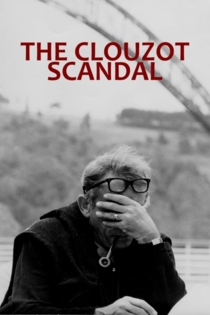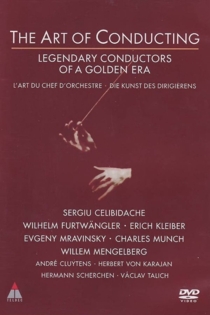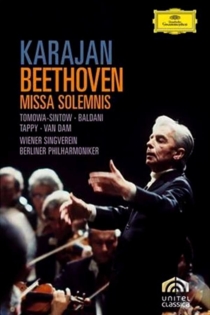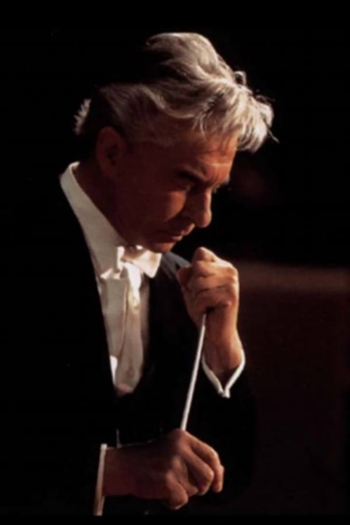
Herbert von Karajan
1908 - 1989The Karajans were of Macedonian Greek ancestry. Herbert's great-great-grandfather, Georg Karajan (Geórgios Karajánnis, Greek: Γεώργιος Καραγιάννης), was born in Kozani, in the Ottoman province of Rumelia (now in Greece), leaving for Vienna in 1767, and eventually Chemnitz, Electorate of Saxony.
His last name, like several other Ottoman-era ones, contains the Turkish language prefix "kara", which means "black".
He and his brother participated in the establishment of Saxony's cloth industry, and both were ennobled for their services by Frederick Augustus III on 1 June 1792, thus adding the prefix "von" to the family name. This usage disappeared with the abolition of Austrian nobility after World War I. The surname Karajánnis became Karajan. Although traditional biographers ascribed a Slovak and Serbian or simply a Slavic origin to his mother, Karajan's family from the maternal side, through his grandfather who was born in the village of Mojstrana, Duchy of Carniola (today in Slovenia), was Slovene. Aromanian heritage has also been claimed. Through the Slovene line, Karajan was related to the Slovenian-Austrian composer Hugo Wolf. He also seems to have known some Slovene.
Heribert Ritter von Karajan was born in Salzburg, Austria-Hungary, the second son of senior consultant Ernst von Karajan (1868–1951) and Marta (née Martha Kosmač; 1881–1954) (married 1905). He was a child prodigy at the piano. From 1916 to 1926, he studied at the Mozarteum in Salzburg with Franz Ledwinka (piano), Franz Zauer (harmony), and Bernhard Paumgartner (composition and chamber music). He was encouraged to concentrate on conducting by Paumgartner, who detected his exceptional promise in that regard. In 1926 Karajan graduated from the conservatory and continued his studies at the Vienna Academy, studying piano with Josef Hofmann (a teacher with the same name as the pianist) and conducting with Alexander Wunderer and Franz Schalk.
Karajan made his debut as a conductor in Salzburg on 22 January 1929. The performance got the attention of the general manager of the Stadttheater in Ulm and led to Karajan's first appointment as assistant Kapellmeister of the theater. His senior colleague in Ulm was Otto Schulmann. After Schulmann was forced to leave Germany in 1933 with the NSDAP takeover, Karajan was promoted to first Kapellmeister. ...
Source: Article "Herbert von Karajan" from Wikipedia in English, licensed under CC-BY-SA 3.0.
Karajan: Porträt eines Maestros
Sigrid Faltin
Birgitta Assheuer, Peter Csobádi
An account of the life and work of controversial German orchestra conductor Herbert von Karajan (1908-89), celebrated as one of the greatest musicians of the twentieth century.
Karajan: Portrait of a Maestro
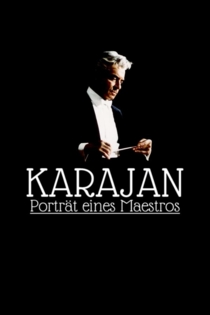
Il Trovatore - Verdi
Ernst Wild
Plácido Domingo, Raina Kabaivanska
The gypsy Azucena (Fiorenza Cossotto) takes revenge for her mother who was accused of putting a curse on one of the old Count di Luna's two sons: she decides to abduct the younger child and throw it in the flames. But when she is about to carry out this fatal act, the gypsy sacrifices her own child and keeps the old Count’s son, whom she names Manrico (IL TROVATORE, Plácido Domingo). Later, as adults, the troubadour Manrico and the Count di Luna’s elder son (Piero Cappucilli) do not know each other, but become rivals for the beautiful Leonora (Raina Kabaivanska). Manrico succeeds in winning the young woman’s heart, and she sacrifices herself for him, deceiving the Count’s son. Mad with jealousy, the latter orders the execution of the troubadour in front of his mother. Azucena reveals to him that Manrico was his brother. This legendary performance of Giuseppe Verdi's most successful opera was recorded at the Vienna State Opera under the baton of Herbert von Karajan.
Il Trovatore - Verdi
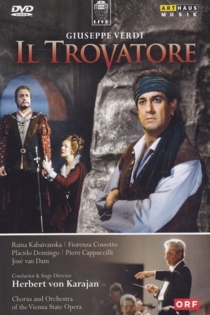
Karajan—Schönheit wie ich sie sehe
Robert Dornhelm
Herbert von Karajan, Leonard Bernstein
With a career that includes a 35-year tenure as composer of the Berlin Philharmonic and record sales topping 200 million, Herbert von Karajan is one of the most legendary figures in 20th-century classical music. Comprised of archival footage, performance highlights and interviews with the likes of Anne-Sophie Mutter, Christa Ludwig and Seiji Ozawa, this retrospective chronicles the life and times of the iconic Austrian maestro.
Karajan: Beauty As I See It
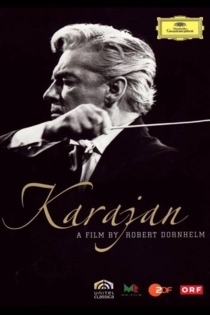
Der Rosenkavalier
Paul Czinner
Herbert von Karajan, Elisabeth Schwarzkopf
The legendary soprano Elisabeth Schwarzkopf stars in this acclaimed film of Richard Strauss' delightful opera, Der Rosenkavalier. This Salzburg Festival production of Strauss' great work toured the world, and this filmed version was hailed by The New York Times as "Superb." Schwarzkopf performs her signature role as Princess von Werdenberg, an aging beauty involved with a younger man, Octavian. But when Octavian agrees to assist Baron Ochs by delivering the Baron's proposal of marriage to the beautiful young Sophie, the messenger and bride-to-be fall in love with each other!
Der Rosenkavalier
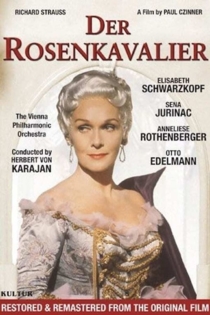
Don Giovanni
Uli Märkle, Michael Hampe
Herbert von Karajan, Samuel Ramey
Live performance from Salzburger Festspiele in 1987. Herbert von Karajan conducting the Wiener Philharmoniker and Wiener Staatsopernchor. Stage director Michael Hampe. Starring Samuel Ramey and Anna Tomowa-Sintow.
Don Giovanni
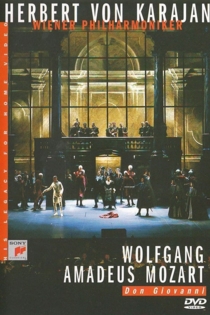
Dvorak: Symphony No. 9: From the New World
Herbert von Karajan, Wiener Philharmoniker
Under the direction of Herbert Von Karajan, the Vienna Philharmonic performs Austrian composer Antonym Dvorak's Symphony No. 9. Dvorak's work was influenced by both European and American folk music, and in his later years by African-American and American Indian music. A favorite for soundtracks, this symphony is instantly recognizable to many. The video includes liner notes and biographies of the performers.
Dvorak: Symphony No. 9: From the New World

Der Rosenkavalier
Herbert von Karajan, Hugo Käch
Herbert von Karajan, Anna Tomowa-Sintow
A production of Strauss' opera 'Der Rosenkavalier' performed at the Saltzburg Festival in 1984. Includes the Vienna State Opera Choir, the Philharmonic Orchestra with singers Wilma Lipp, Anna Tomowa-Sintow and Agnes Baltsa. Conducted by Herbert Von Karaja
Der Rosenkavalier
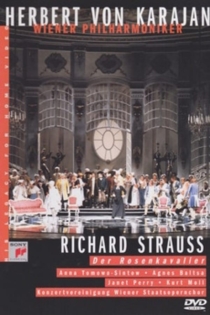
Wagner: Das Rheingold
Herbert von Karajan
Herbert von Karajan, Thomas Stewart
This 1978 studio production of the prologue to Wagner's masterpiece is the only segment of the famous Salzburg Festival/Metropolitan Opera productions, first seen in the 1960s, that made it to film. Based on one of those original productions, Georges Wakhevitch produced stage settings and transformations that supported Karajan's concept with every possible means. Herbert Von Karajan's staging is in the epic style of another age, emphasizing the dignity of the gods rather than their all too human failings. With the singers - foremost among them Peter Schreier - Karajan had an ensemble that fully conformed to his intentions.
Wagner: Das Rheingold
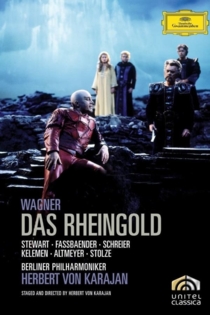
Bizet Carmen
Herbert von Karajan
Grace Bumbry, Jon Vickers
This spectacular opera film was taped in 1967 and is based on the 1966 Salzburg Festival production directed by Herbert von Karajan himself, who also conducts the fabulous Vienna Philharmonic Orchestra. The production features the three greatest exponents of their respective roles at the time: Grace Bumbry’s magnificently seductive-toned Carmen, Mirella Freni’s ineffably lovely, touching Micaëla and Jon Vickers’s thrillingly manic-depressive Don José. On its release the film was hailed by Die Presse, (Vienna) as a “unique artistic event”, while Le Monde felt that Karajan’s production brought “a whole new dimension” to the opera, “combined with a magisterial interpretation”. A classical and utterly dramatic approach to probably the world's most beloved opera – Karajan’s Carmen is as much a delicacy for opera fans as it is a perfect starter for newcomers.
Bizet Carmen
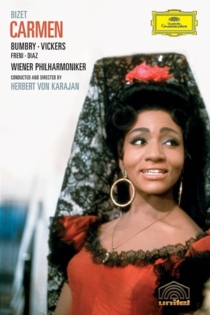
La Bohème
Franco Zeffirelli
Mirella Freni, Adriana Martino
In the early 1960s two artistic giants, conductor Herbert von Karajan and director Franco Zeffirelli, joined forces to create this milestone production of Puccini’s masterpiece at Milan’s Teatro alla Scala. Filmed in that legendary opera house in 1965, with Zeffireli himself directing for the cameras, this “Bohème” has been acclaimed universally for its unique theatrical impact and visual splendour. Starring the young Mirella Freni in her carreer-making performance. – For the first time the full dimension of opera on film.
La Bohème
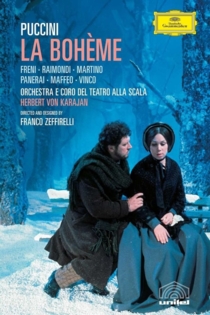
Herbert von Karajan: Maestro for the Screen
Georg Wübbolt
Herbert von Karajan, Hugo Niebeling
Documentary on conductor Herbert van Karajan, focusing on his early adoption of audio and video recording technology and his impetus to make use of it to preserve his musical legacy for future generations.
Herbert von Karajan: Maestro for the Screen
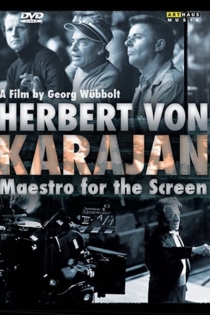
The Clouzot Scandal
Pierre-Henri Gibert
Aurélien Recoing, Bernard Stora
Great filmmakers claim the artistic influence of French director Henri-Georges Clouzot (1907-1977), a master of suspense, with a unique vision of the world, who knew how to offer both great shows and subtle studies of characters. Beyond the myth of the tyrannical director, a contrasting portrait of a visionary, an agitator, an artist against the system.
The Clouzot Scandal
